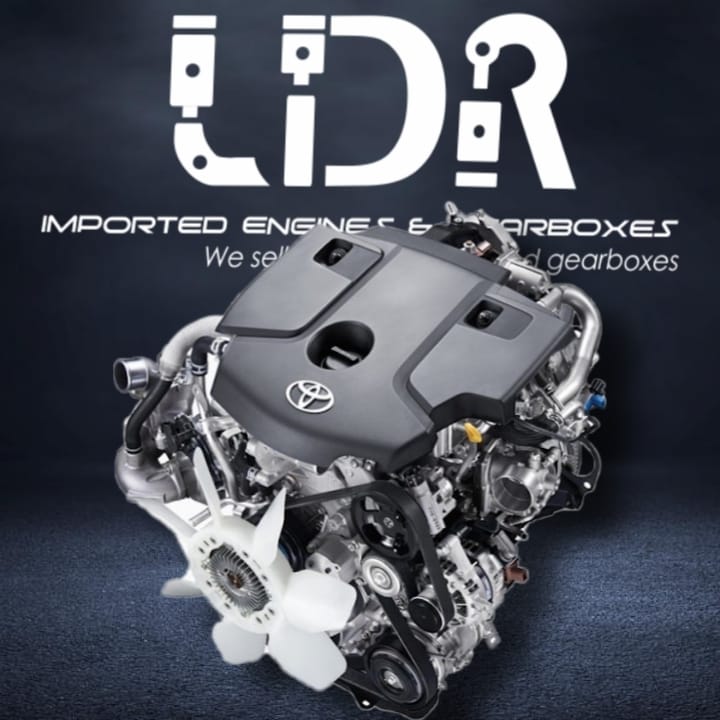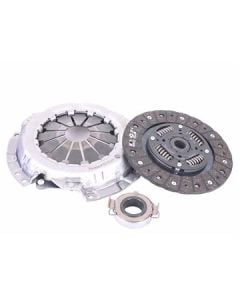Drive with Self-confidence: Toyota Tazz Engine for Sale, Genuine Components Just
Drive with Self-confidence: Toyota Tazz Engine for Sale, Genuine Components Just
Blog Article
Engine Buying Professional Tips on Picking the Right Engine for Your Particular Requirements
Choosing the appropriate engine for your specific needs includes a complicated interaction of factors that go beyond simple horse power numbers. By diving right into the intricacies of power versus efficiency, examining gas rankings, and budgeting for long-lasting prices, one can truly optimize their engine choice.
Power Vs. Effectiveness: Finding the Equilibrium

When picking an engine, it is critical to strike an equilibrium in between power and effectiveness to satisfy your certain requirements efficiently. Power refers to the engine's ability to generate energy for propulsion, determining factors like velocity, hauling capacity, and overall efficiency (Toyota Tazz Engine For Sale). On the other hand, performance connects to how well the engine makes use of gas to produce power, affecting variables such as fuel economy and ecological friendliness
Achieving the appropriate balance in between power and efficiency is crucial since an engine that is as well powerful might take in too much fuel, bring about higher operating expense and unneeded strain on the atmosphere. Alternatively, an engine that prioritizes efficiency over power may cause slow performance, specifically in demanding scenarios like towing hefty lots or driving uphill.
To make a notified decision, take into consideration elements such as your regular driving conditions, the designated usage of the vehicle, and your personal choices. By evaluating your concerns and needs, you can pick an engine that strikes the perfect balance between power and efficiency, making sure optimum performance while reducing ecological influence and operating costs.
Understanding Engine Size and Kind

Furthermore, engine type plays a vital duty in determining the performance characteristics of an engine. Usual engine kinds consist of inline engines, V engines, and rotating engines, each with its unique benefits and downsides. The engine kind influences variables such as the engine's dimension, weight circulation, and power shipment. Comprehending the interplay in between engine size and type is vital in picking an engine that straightens with your details demands and priorities, whether it be power, performance, or an equilibrium of both.
Consider Your Car's Requirements
If you are looking for an engine for a sturdy truck that will certainly be made use of for towing, you will certainly require a powerful engine with high torque capabilities. On the various other hand, if you are choosing an engine for a small auto largely made use of for city commuting, fuel performance might be an extra critical aspect to think about.

Examining Fuel Effectiveness Scores
Evaluating fuel efficiency ratings is an essential aspect of selecting the ideal engine for your vehicle, making certain price savings and ecological sustainability. Gas effectiveness scores, generally measured in miles per gallon (MPG) for gasoline engines or kilowatt-hours per 100 miles (kWh/100 miles) for electrical engines, show just how far a car can travel on a specific quantity of gas or electrical energy. Greater MPG or lower kWh/100 miles worths represent much more reliable engines, converting to decreased fuel prices and lower carbon emissions.
In addition, compare different engine alternatives within the exact same car course to identify the most economical selection. Aspects such as engine dimension, weight, aerodynamics, and hybrid or electric abilities can all affect gas efficiency.
Budgeting for Long-Term Expenses
Purposefully preparing for lasting expenses is necessary when choosing an engine, ensuring monetary sustainability over the automobile's life-span. While the initial like it purchase cost of an engine is a significant variable, it is crucial to think about the lasting prices associated with maintenance, fixings, and gas usage. Deciding for a much more fuel-efficient engine might have a greater ahead of time price but can result in substantial cost savings with time. Routine maintenance, such as oil modifications, filter substitutes, and tune-ups, is necessary to maintain the engine running efficiently and successfully, lowering the threat of pricey fixings down the line.
In addition, looking into the schedule and expense of replacement parts for the selected engine is essential in budget preparation. Engines with cost effective and easily available parts can significantly influence lasting maintenance expenses. Additionally, considering the engine's toughness and anticipated life expectancy can help stay clear of unforeseen replacement prices in the future. By thoroughly budgeting for these long-term expenditures and factoring them into the decision-making procedure, individuals can pick an engine that not just meets their prompt requirements yet likewise continues to be cost-effective throughout its life expectancy.
Conclusion
In final thought, picking the appropriate engine for your details needs needs balancing power and effectiveness, comprehending engine dimension and type, considering your automobile's demands, reviewing gas efficiency ratings, and budgeting for lasting costs. By carefully considering these factors, you can guarantee that you select an engine that fulfills your demands and provides optimal performance for your car.
To even more fine-tune the choice procedure of an engine that strikes the ideal balance in between power and performance, it is essential to delve into the complexities of recognizing engine size and imp source type. Engine size refers to the total quantity of air and gas that can be pushed through the engine cylinders. Typical engine kinds include inline engines, V engines, and rotating engines, each with its unique benefits and downsides. Recognizing the interaction in between engine dimension and kind is crucial in choosing an engine that aligns with your details demands websites and concerns, whether it be power, effectiveness, or a balance of both.
Gas performance rankings, commonly determined in miles per gallon (MPG) for gasoline engines or kilowatt-hours per 100 miles (kWh/100 miles) for electrical engines, suggest just how much an automobile can take a trip on a certain amount of gas or power.
Report this page